Saturday, October 13th 2018

New PT Data: i9-9900K is 66% Pricier While Being Just 12% Faster than 2700X at Gaming
Principled Technologies (PT), which Intel paid to obtain some very outrageous test results for its Core i9-9900K eight-core processor launch event test-results, revised its benchmark data by improving its testing methodology partially. Initial tests by the outfit comparing Core i9-9900K to the Ryzen 7 2700X and Ryzen Threadripper 2950X and 2990WX, sprung up false and misleading results because PT tested the AMD chip with half its cores effectively disabled, and crippled its memory controller with an extremely sub-optimal memory configuration (4-module + dual-rank clocked high, leaving the motherboard to significantly loosen up timings).
The original testing provided us with such gems as the i9-9900K "being up to 50 percent faster than 2700X at gaming." As part of its revised testing, while Principled Technologies corrected half its rookie-mistakes, by running the 2700X in the default "Creator Mode" that enables all 8 cores; it didn't correct the sub-optimal memory. Despite this, the data shows gaming performance percentage-differences between the i9-9900K and the 2700X narrow down to single-digit or around 12.39 percent on average, seldom crossing 20 percent. This is a significant departure from the earlier testing, which skewed the average on the basis of >40% differences in some games, due to half the cores being effectively disabled on the 2700X. The bottom-line of PT's new data is this: the Core i9-9900K is roughly 12 percent faster than the Ryzen 7 2700X at gaming, while being a whopping 66% pricier ($319 vs. $530 average online prices).This whopping 12.3% gap between the i9-9900K and 2700X could narrow further to single-digit percentages if the 2700X is tested with an optimal memory configuration, such as single-rank 2-module dual-channel, with memory timings of around 14-14-14-34, even if the memory clock remains at DDR4-2933 MHz.
Intel responded to these "triumphant" new numbers with the following statement:
The entire testing data follows:
Source:
Principled Technologies (PDF)
The original testing provided us with such gems as the i9-9900K "being up to 50 percent faster than 2700X at gaming." As part of its revised testing, while Principled Technologies corrected half its rookie-mistakes, by running the 2700X in the default "Creator Mode" that enables all 8 cores; it didn't correct the sub-optimal memory. Despite this, the data shows gaming performance percentage-differences between the i9-9900K and the 2700X narrow down to single-digit or around 12.39 percent on average, seldom crossing 20 percent. This is a significant departure from the earlier testing, which skewed the average on the basis of >40% differences in some games, due to half the cores being effectively disabled on the 2700X. The bottom-line of PT's new data is this: the Core i9-9900K is roughly 12 percent faster than the Ryzen 7 2700X at gaming, while being a whopping 66% pricier ($319 vs. $530 average online prices).This whopping 12.3% gap between the i9-9900K and 2700X could narrow further to single-digit percentages if the 2700X is tested with an optimal memory configuration, such as single-rank 2-module dual-channel, with memory timings of around 14-14-14-34, even if the memory clock remains at DDR4-2933 MHz.
Intel responded to these "triumphant" new numbers with the following statement:
Given the feedback from the tech community, we are pleased that Principled Technologies ran additional tests. They've now published these results along with even more detail on the configurations used and the rationale. The results continue to show that the 9th Gen Intel Core i9-9900K is the world's best gaming processor. We are thankful to Principled Technologies' time and transparency throughout the process. We always appreciate feedback from the tech community and are looking forward to comprehensive third party reviews coming out on October 19.The media never disputed the possibility of i9-9900K being faster than the 2700X. It did, however, call out the bovine defecation peddled as "performance advantage data."
The entire testing data follows:




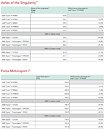
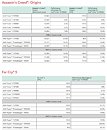
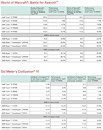



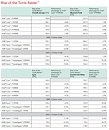
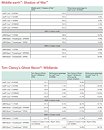

322 Comments on New PT Data: i9-9900K is 66% Pricier While Being Just 12% Faster than 2700X at Gaming
AMD simply CANNOT make enough CPUs to take the whole market, and they have some good engineers too, so why not let them get some money and do some more good work for a while? Both sides win in this one, but I think some people are missing this aspect of it all.I can see how the timings and such of everything that is going on might need to have things running simultaneously, and how this can help them with future titles as well. Speaking as someone that has played every game in the series since it began, and what's required of it to remain relevant... it kinda makes sense to want at least 8 threads. But I have to say.. 8 REAL threads, not some BS HT threads. Oh wait, what does both Intel and AMD offer now? o_O
TPU's Gaming Performance Summary will show a gap under 10% I am betting. And in the UK, the cost is DOUBLE that of a 2700X, all for 10-12% more performance, and only at 1080p?!? Get out of here. Wouldn't even be compelling at £375 let alone £575-600.
Read TPU's review of the 8700K and the summary: overclocking it to 5Ghz all-core adds......1-3% more gaming performance. ONE to THREE percent, yet you think you'll get another 8% going from 5ghz 2-core boost to (realistically), 5Ghz all-core boost? Come back down to earth.
Also, let's be honest, 5Ghz on all 8-cores is going to draw a horrendous amount of power and will be extremely hot and hard to tame. And before you try and claim 9900K can achieve well over 5Ghz on all 8-cores, I'll believe it when I see it from retail CPUs not cherry-picked reviewer samples.
www.tomshardware.com/reviews/intel-core-i3-8350k-cpu,5304.html
checkout this review, i3-8350K at 5GHz is in another level compared to itself at stock clocks.
video Games will be more CPU-Heavy and GPUs will be much faster in future, that's where and when you start to see the true benefit of great overclocking potential in older/weaker CPUs.
But, like I said, I think they were just being lazy with the requirements and just picked a high end processor just to not have to hear about the game running poorly because of people trying to run it on Pentiums and crap.
I don't usually agree with toms hardware but they said it bestFull article here
Now if you want your 9900k to do 5ghz on more than one or two cores prepare for lots of UEFI time.
I've seen this repeated a few times, apparently the 9900K will be capable of overclocking to '5.3Ghz all-core' which is just unrealistic. I mean, it could under LN2, but you know what I mean. That's the first fallacy/fantasy. The second fallacy/fantasy from that poster is that by overclocking your 9900K at home you'll get another 8% gaming performance over stock (it already has a very high boost clock of 5Ghz on not just one but two cores). What is a realistic all-core overclock for a CPU that is essentially a soldered 8700K with two more cores and 4 more threads? Let's be generous and say 5.1Ghz. Stock 2-core 5Ghz boost vs 8-core 5ghz boost is not going to add anything more than 1-3% gaming performance on average, if that.
You can still build a 5k system nowadays though.
What this threads shows me personally is that people don't truly value high-end hardware, and that we have an excess of compute power available for small cost.
Finding ways to show this properly might be very difficult though.
If you are playing the same type of game over and over with older hardware, then what benefits do new hardware offer?
The same performance, with less power use, and lower cost? Less noise?
Why does everyone need to only consider the top dog in each platform? How are these new top dogs even relevant?
Why is HEDT called High End DeskTop?
LuLz.
I mean, I got mITX 7980XE with 32 GB of ram and triple M.2 devices, with a SATA 6Gb/s boot disc, GTX 1080.
I got mATX TR 1950X with 64 GB of ram, dual M.2, and huge 6 TB mechanical along with SATA 6 Gb/s boot disc, GTX 1080 for video
I got i5-8400 with 16 GB of ram, M.2, SATA 6 Gbps, and a 1060.
I got 2200G with 16 GB of ram.
Where does the mythical CPU in this thread fit in? Mid-grade? What should it REALLY cost? Seems aptly priced, if you ask me.
I paid $1250 CAD for my QX9650. That was a 3.0 GHz quad with 12 MB of cache, and a 130W TDP, a decade ago.
That wasn't HEDT.
So today, a decade later, we got a chip with twice the cores, capable of 166% the speed, with similar cache, for $600? I call that not bad, really.
This new CPU isn't the ever-popular E6600 replacement... It DIRECTLY replaces that old QX9650. It SHOULD cost $1250 CAD.See above. we've gone from $1000 USD top-level chips to $600. That's fine by me. In the grand scheme of things, we're getting a deal as of late, and that deal was in place in order to grow the market. That didn't work that well, so now they've been forced to increase those margins a bit again. At least they didn't jump back to what they did a decade previous. I don't blame Intel one bit.
Hope they keep fucking up like this forever, I enjoyed buying an 8c/16t CPU with great IPC for little over 250$.
You've only proved my point.
Now, I'm not saying you are wrong, at all, but man, how things have changed... boy how they have changed.
I've got my mITX 7980XE CPU on my desk in front of me. It's crazy how much more I am getting now for what to me, is so little, both in size, and power use.